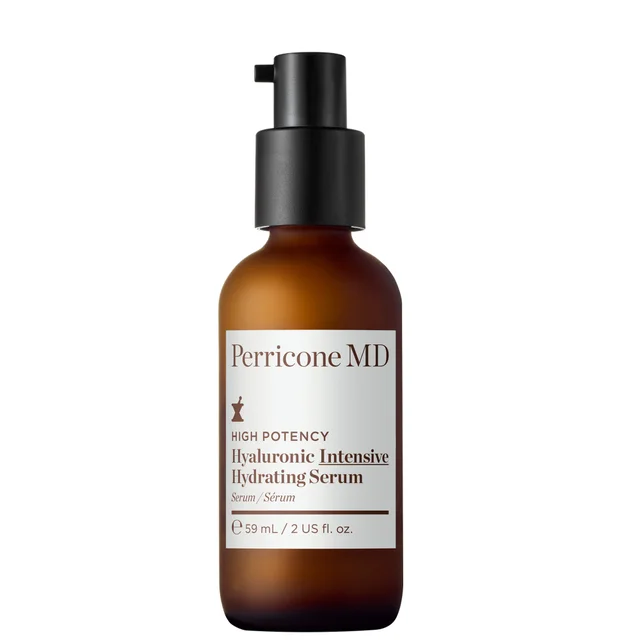7 Myths About Hyaluronic Acid
Even if you’re a skincare newbie, you’ve probably heard a thing or two about hyaluronic acid (HA) as it’s gained popularity in recent years. And rightfully so! It’s worth all the hype. Why, you ask? Well, aside from its unique capacity to retain water and its unmatched hydrating benefits, it’s also found naturally in our bodies, making it safe for everyone, even those with sensitive skin.As hyaluronic acid has become increasingly buzzworthy, though, misinformation has unsurprisingly flooded the internet, causing people to wonder, can you use too much hyaluronic acid? We’re here to clear up your confusion.
MYTH #1: Hyaluronic acid is an exfoliant.
Despite “acid” being in its name, hyaluronic acid is not an exfoliant. While HA is technically considered an acid due to its low pH, it does not have the same exfoliating properties as alpha-hydroxy acids (AHAs) like glycolic and lactic acid or beta-hydroxy acids (BHAs) like salicylic acid.
Instead, hyaluronic acid is a powerful humectant known for its moisture-retaining capabilities. So, aside from its pH, HA really isn’t what we think of as a traditional “acid” because it hydrates, replenishes, smooths and plumps skin. This may soften any concerns about whether you can use too much hyaluronic acid!
MYTH #2: Hyaluronic acid is the same as sodium hyaluronate
Hyaluronic acid and sodium hyaluronate (SH) are similar, but different. For starters, though both ingredients have a unique capacity to retain water, SH is a synthesized, salt form of hyaluronic acid. It also has a lower molecular weight than HA, giving it the ability to absorb into skin more easily, allowing for improved skin hydration.
The unique Hyaluronic 4 + 2 Complex in our High Potency Hyaluronic Intensive Hydrating Serum includes both hyaluronic acid and sodium hyaluronate for instant and long-lasting hydration, helping to increase the feel of skin cushion, reduce the appearance of fine lines and wrinkles and replenish essential moisture.
MYTH #3: We maintain the same amount of hyaluronic acid in our bodies over time
The unfortunate truth about our bodies’ supply of hyaluronic acid is that it deteriorates as we age, beginning as early as our twenties. By the time we’ve reached about fifty years old, the Journal of the American Academy of Dermatology reports, our bodies’ hyaluronic acid levels have been reduced by about half.
While natural, intrinsic aging plays a big part in this loss of hyaluronic acid, external factors can accelerate this process as well. This is known as extrinsic skin aging, or the process of aging induced by your lifestyle choices and the environment. Smoking, air pollution and UV damage, to name a few, are top culprits in expediting the loss of hyaluronic acid, making topical application of HA all the more essential for maintaining a healthy, youthful-looking complexion.
MYTH #4: Hyaluronic acid should be applied to dry skin
Alternatively, when you apply your hyaluronic acid products to damp skin, it absorbs and retains that excess water instead, without taking it from your skin. For this reason, it is significantly more effective to apply it to skin that’s damp to experience the power of its hydrating benefits.
MYTH #5: All hyaluronic acid works the same.
Not all hyaluronic acid is created equal. In fact, HA comes in a variety of molecular weights, which penetrate different layers of the skin. Molecules with low molecular weights are smaller and can, therefore, reach the deeper layers of the skin, while those with high molecular weights remain closer to the surface to benefit the skin barrier.
Because of this, hyaluronic acid products with a variety of molecular sizes are most effective for maximum results. Our exclusive Hyaluronic 4 + 2 Complex found in our High Potency Hyaluronic Intensive Hydrating Serum contains four forms and two natural building blocks of hyaluronic acid, making it ideal for intense hydration that’s both instant and long-lasting.
MYTH #6: If you’re a vegan, you can’t use hyaluronic acid.
While hyaluronic acid has been extracted from animal tissues, including rooster combs, since the early 1930s, the HA found in many skincare products today, including our High Potency Hyaluronic Intensive Hydrating Serum, is vegan as it’s derived from natural, non-animal sources through fermentation.
MYTH #7: Hyaluronic acid only helps those with dry skin.
We can’t stress this enough: hyaluronic acid is ideal for all skin types. Yes, even oily and acne-prone skin. It’s often thought that these skin types do not need more hydration, but this is a misconception.
The truth is, excessively oily skin is likely due to a pH imbalance. When skin is overly oily, it’s likely too acidic and when skin is overly dry, it’s likely too alkaline. To balance skin’s pH, regardless of which side of the scale it’s on, you do the same thing: hydrate to maintain moisture levels.
And... there you have it! There's a reason everyone's talking about hyaluronic acid and it's more than just the trendy thing to do. Don't let the myths about hyaluronic acid fool you, this ingredient plays an essential role naturally within our bodies to provide seemingly endless benefits when applied topically. You can rest assured knowing the answer to whether you can use too much hyaluronic acid and it's no surprise, this ingredient is hard not to love!
Shop This Post:

